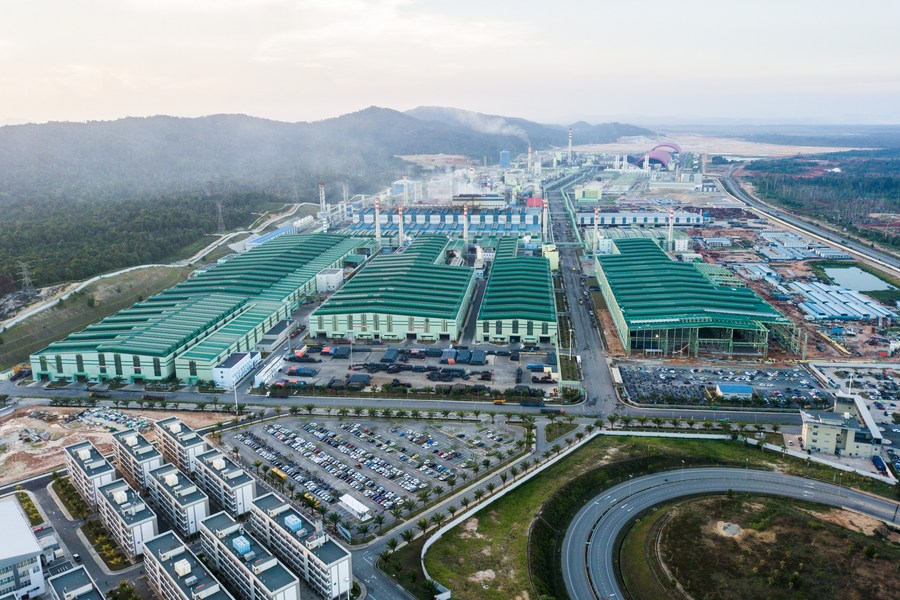[ad_1]

Guests attend the groundbreaking ceremony of the Malaysia-China Kuantan international logistic park in Kuantan, Pahang state of Malaysia, on April 7, 2023. (Photo by Chong Voon Chung/Xinhua)
The Malaysia-China Kuantan Industrial Park allows Malaysia to streamline its trade with East Asia, chiefly China, which is Malaysia’s largest trading partner for a range of commodities and manufactured goods, East Coast Economic Region Development Council CEO Baidzawi Che Mat says.
KUALA LUMPUR, April 10 (Xinhua) — The Malaysia-China Kuantan Industrial Park (MCKIP) has remained a key economic driver along Malaysia’s east coast a decade after its launch, boosting industrial output and job creation, said an official overseeing the region’s development.
This has allowed Malaysia to streamline its trade with East Asia, chiefly China, which is Malaysia’s largest trading partner for a range of commodities and manufactured goods, East Coast Economic Region Development Council (ECERDC) CEO Baidzawi Che Mat told Xinhua.
“MCKIP is a flagship project for bilateral investment cooperation between Malaysia and China and it is the first industrial park in Malaysia to be jointly developed by both Malaysia and China, and to be accorded the national industrial park status,” he said.
“Through the development of MCKIP, Malaysia and China saw an increase of investment from both sides. Since MCKIP was launched in February 2013, it has become one of ECERDC’s most successful industrial parks,” he added.

Aerial photo taken on April 15, 2019 shows the Alliance Steel at the Malaysia-China Kuantan Industrial Park in Pahang, Malaysia. (Xinhua/Zhu Wei)
The MCKIP is a key Belt and Road cooperation project and a demonstration base for cross-border industrial capacity cooperation. The MCKIP, together with the China-Malaysia Qinzhou Industrial Park situated in China’s southern Guangxi Zhuang Autonomous Region, has set an innovative example of bilateral economic cooperation under the model of “Two Countries, Twin Parks.”
“The development of MCKIP has generated high-paying jobs in various positions from management to production for locals in the area,” he said.
In tandem with the MCKIP, Baidzawi said, the development and expansion of Kuantan Port in Pahang state has allowed products from the industrial park as well as other key Malaysian industries, particularly palm oil, rubber and other commodities, to benefit, having a direct outlet to the South China Sea, facilitating ease of trade with East Asia.
“With the full completion of the expansion, the throughput of Kuantan Port is expected to double from 26 million freight weight tonnes to 52 million freight weight tonnes. The increased port activities and expansion of cargo services will generate jobs for the locals in the shipping industry and business opportunities for local freight forwarders and logistic players,” he said.
Commenting on the 10th anniversary of the Belt and Road Initiative (BRI), of which Malaysia was an early partner and remains strongly committed to, Baidzawi said the MCKIP is one of Malaysia’s key projects under the initiative, which includes the East Coast Rail Link (ECRL).
“Its success speaks loudly of the strong cooperation between Malaysia and China. With the completion of ECRL, which is also a key project under the BRI, ECERDC expects a significant increase in the movement of goods and personnel to and from MCKIP via Kuantan Port and ECRL,” he said. ■
[ad_2]
Source link
